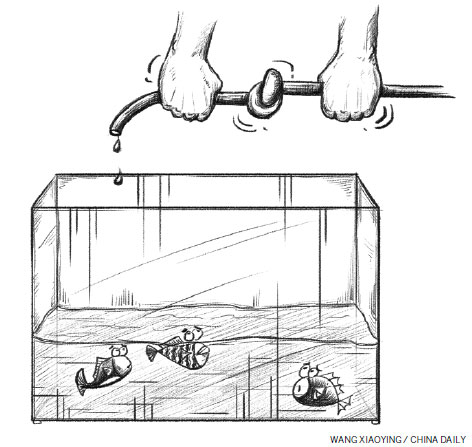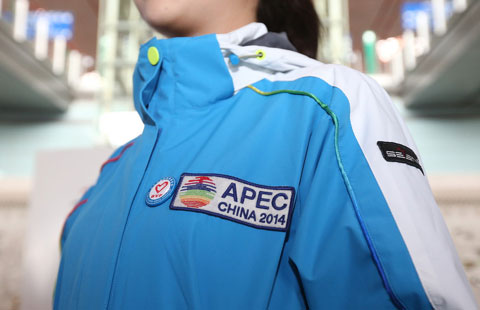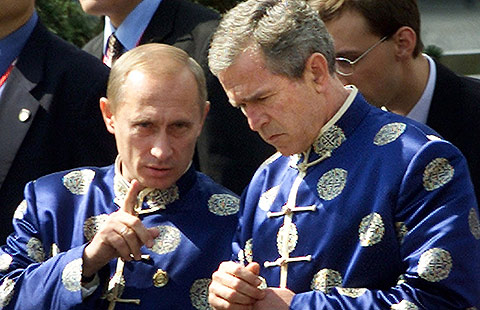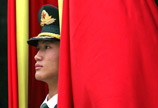What does end of QE mean for EMs?
Updated: 2014-11-03 07:39
By Neil Shearing(China Daily USA)
|
||||||||
Most of the emerging world should take the end of the US Federal Reserve's third phase of quantitative easing in its stride. The link between QE and capital flows to emerging markets has often been exaggerated. And while some emerging markets look vulnerable as rates in the United States move up, it's far more likely that growth in the major EMs will be held back by homegrown problems than by the actions of the Fed.
The Fed confirmed the end of its asset purchases under QE3 on Oct 30. Anticipation that it would start to scale back purchases proved the trigger for last year's "taper tantrum" in which markets across the emerging world fell sharply. Looking ahead, the majority view appears to be that the end of policy stimulus in the US will pose a stiff headwind for EM growth in the coming years.
We at (Capital Economics) would be wary of dismissing the potential fallout from the end of QE and the eventual tightening of US policy altogether. But the worst fears that it could trigger a spate of crises across the emerging world are overdone. Our Global Markets service is the place to look for detailed analysis of what impact QE has had on EM financial markets, but the short point is that it does not seem to have been a major support for equities.
Accordingly, there is no compelling reason to expect EM equities after QE ends. In terms of the macro fallout, there are two channels through which QE might have had an impact on EMs. The first is by providing much-needed support to the US economy, although with the recovery now on a firmer footing this has become less important. The second is by boosting capital flows to EMs.
The evidence here is mixed. It does seem that inflows to EMs picked up in all three phases of QE. Even so, we would be careful about overplaying the extent to which this has been an important driver of capital flows to the emerging world. For a start, inflows continued to rise after the end of QE1 and before the start of QE2. What's more, despite three rounds of QE, inflows remain well below their pre-crisis peak. In other words, the scale of inflows to EMs is determined by more than monetary policy - unconventional or otherwise - in the US.
Given this, it would be wrong to draw a mechanical link between QE and the economic performance of EMs. Indeed, EM growth slowed during the second phase of Fed QE and has remained extremely weak throughout QE3.
In practice, it's impossible to construct a one-size-fits-all view of what the end of QE means for EMs. QE, along with super-loose policy in the US more generally, has enabled some EMs to borrow cheaply to finance consumption binges and sustain large current account deficits. This will become more difficult as US rates start to move up. Countries with large external borrowing requirements, including Turkey, Indonesia and South Africa, are likely to come under pressure.
But we suspect the bigger theme in EMs in the coming years will be continued weakness in the BRICS member states. These countries are by far the largest emerging economies and they are all struggling for domestic reasons. And reviving growth in BRICS will depend on the actions of local policymakers - not those in the US.
The author is chief emerging markets economist at Capital Economics.

(China Daily USA 11/03/2014 page13)

 NYC marathon held in chilly, windy weather
NYC marathon held in chilly, windy weather
 Volunteers aim high for APEC
Volunteers aim high for APEC
 Sports moments of the week (Oct 27 - Nov 2)
Sports moments of the week (Oct 27 - Nov 2)
 Zhuangyuan museum in Suzhou to open
Zhuangyuan museum in Suzhou to open
 Top 10 most visited video streaming sites in China
Top 10 most visited video streaming sites in China
 Traditional dresses add color to APEC
Traditional dresses add color to APEC
 A brief look at prison breaks in China
A brief look at prison breaks in China
 Chinese airline opens 1st Shanghai-Kathmandu route
Chinese airline opens 1st Shanghai-Kathmandu route
Most Viewed
Editor's Picks

|

|

|

|

|

|
Today's Top News
Wanted: 500,000 pilots for China aviation
Shaping Asia-Pacific's future
Xi stresses CPC's absolute leadership over army
Foreign TV shows online will need permission
Mass Ebola outbreak 'is unlikely'
S. Korea's plastic surgery paradise lost
China, US to meet on WMD nonproliferation
Danone bolsters China presence with $550m deal
US Weekly

|

|







